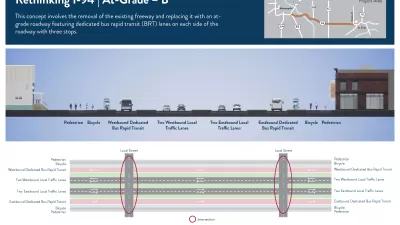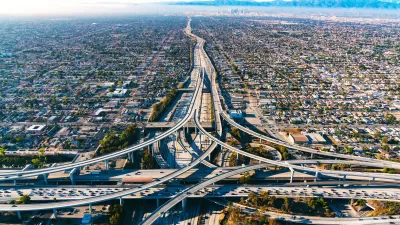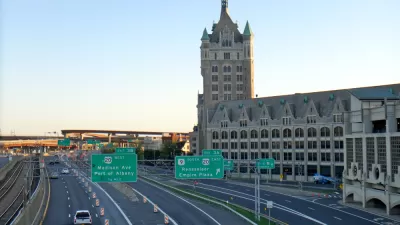Although the concept has recently received more national attention thanks in part to the federal Reconnecting Communities Act, cities have shown reluctance to support highway removal projects.

Although the concept of freeway removal is picking up steam as more communities call for a reversal of the car-centric policies that led to rampant highway construction over the last half century, the movement still faces some challenges. Pointing to an example from Dallas, Texas, Jared Brey writes that some cities and transportation departments are still less than willing to support full highway removal. Meanwhile, the $1 billion program for highway removal in the Infrastructure Investment and Jobs Act is “much smaller than originally envisioned, when it was included in Biden’s Build Back Better proposal with $20 billion of funding.”
Maintaining highways is a costly and time-consuming physical feat, but so is removing them. And it leaves open tough questions about what should be done with the new space that it creates: How it should be used and by whom, for whose benefit and profit.
As Brey writes, “In Dallas, TxDOT is hoping to move ahead with a plan to sink portions of I-345 but keep the highway intact,” citing the potential for additional congestion if the highway is removed altogether. “But there’s much more at stake in highway removal, from potential health benefits to adjacent communities to the possibility of ever-more-rapid gentrification.”
FULL STORY: Highway Removal a High Hurdle, Even With New Funding

Alabama: Trump Terminates Settlements for Black Communities Harmed By Raw Sewage
Trump deemed the landmark civil rights agreement “illegal DEI and environmental justice policy.”

Study: Maui’s Plan to Convert Vacation Rentals to Long-Term Housing Could Cause Nearly $1 Billion Economic Loss
The plan would reduce visitor accommodation by 25% resulting in 1,900 jobs lost.

Planetizen Federal Action Tracker
A weekly monitor of how Trump’s orders and actions are impacting planners and planning in America.

Wind Energy on the Rise Despite Federal Policy Reversal
The Trump administration is revoking federal support for renewable energy, but demand for new projects continues unabated.

Passengers Flock to Caltrain After Electrification
The new electric trains are running faster and more reliably, leading to strong ridership growth on the Bay Area rail system.

Texas Churches Rally Behind ‘Yes in God’s Back Yard’ Legislation
Religious leaders want the state to reduce zoning regulations to streamline leasing church-owned land to housing developers.
Urban Design for Planners 1: Software Tools
This six-course series explores essential urban design concepts using open source software and equips planners with the tools they need to participate fully in the urban design process.
Planning for Universal Design
Learn the tools for implementing Universal Design in planning regulations.
Caltrans
Smith Gee Studio
Institute for Housing and Urban Development Studies (IHS)
City of Grandview
Harvard GSD Executive Education
Toledo-Lucas County Plan Commissions
Salt Lake City
NYU Wagner Graduate School of Public Service





























